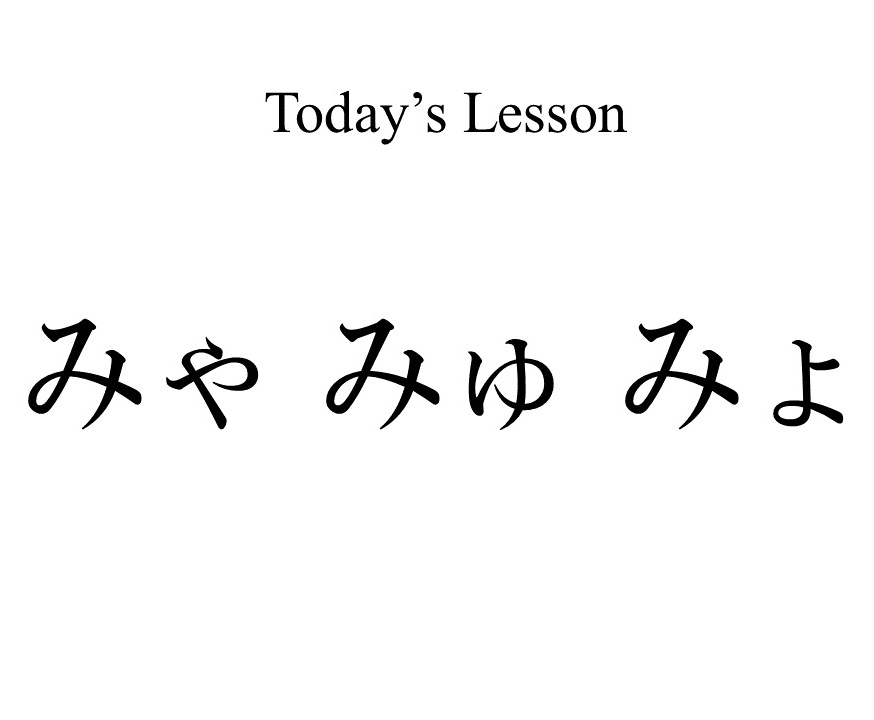
Description of the Japanese Pronunciation みゃ みゅ みょ

みゃ みゅ みょ consist of the Japanese consonant [mj] representing the sounds of the roman letters /my/ with the Japanese vowels [a], [u] and [o] respectively. When you pronounce [mj], your lip is going to close and simultaneously your tongue is going to touch the roof of your mouth, i.e. what you use to pronounce [j] (=/y/). This closure will cause a buildup of pressure. Then, you will release that pressure all at once via both your nose and mouth. [mj] is a voiced sound.
Does it make sense to you? Let's try to pronounce みゃ みゅ みょ after the tutor on the video!
Wasabi Japanese Pronunciation Lessons
Words Exercise with the Pronunciation [mj] みゃ みゅ みょ
Please repeat the following words after the tutor on the video.
| Words | Roman Letters | Meanings |
|---|---|---|
| みゃく | mya ku | pulse |
| ぶんみゃく | bu n mya ku | context |
| さんみゃく | sa n mya ku | mountain range |
| ミュージック | myû zi kku | music |
| ミュージアム | myû zi a mu | museum |
| 妙 | myo u | strange, odd |
| みょうが | myo u ga | Japanese ginger |
| みょうちょう | myo u cho u | tomorrow morning |
| じゅみょう | zyu myo u | life span |
| ほんみょう | ho n myo u | real name |
Sentences Exercise with the Pronunciation [mj] みゃ みゅ みょ
Please repeat the following sentences after the tutor in the video.
| Japanese Sentences | English Translations |
|---|---|
| 留学生とミュージアムに行きました。 | I went to the museum with the foreign student. |
| 妙な文脈ですね。 | The context is strange, isn’t it? |
| 明朝、ヒマラヤ山脈に登ります。 | I will climb Himalayan Range tomorrow morning. |
Tongue Twister Exercise with the Pronunciation [mj] みゃ みゅ みょ
Please repeat the following tongue twisters after the tutor on the video. Also, please focus on the pronunciation practice, not the meaning, because they were made only for the sake of practice.
| Japanese Tongue Twisters | Vocabulary |
|---|---|
|
絶妙に美味い妙なミョウガ |
絶妙: exquisite, 美味い: delicious, 妙: strange, odd, ミョウガ: Japanese ginger |
|
きゃりーぱみゅぱみゅ、きゃりーぱみゅぱみゅ |
きゃりーぱみゅぱみゅ: singer name |
|
山脈みゃくみゃく、人脈みゃくみゃく |
山脈: mountains, 人脈: personal connection |
Conclusion
This is the how to pronounce [mj] みゃ みゅ みょ. We recommend that you practice the sentences above at least 5 times for each exercise, though we understand that pronunciation practice can be dull. Good pronunciation will give you listening and speaking ability, and thereby you will be confident enough to speak Japanese with native speakers. Thus, the ability you gain is well worth the time spent. We are looking forward to seeing you in the next lesson; [ɾ j] りゃ りゅ りょ.
